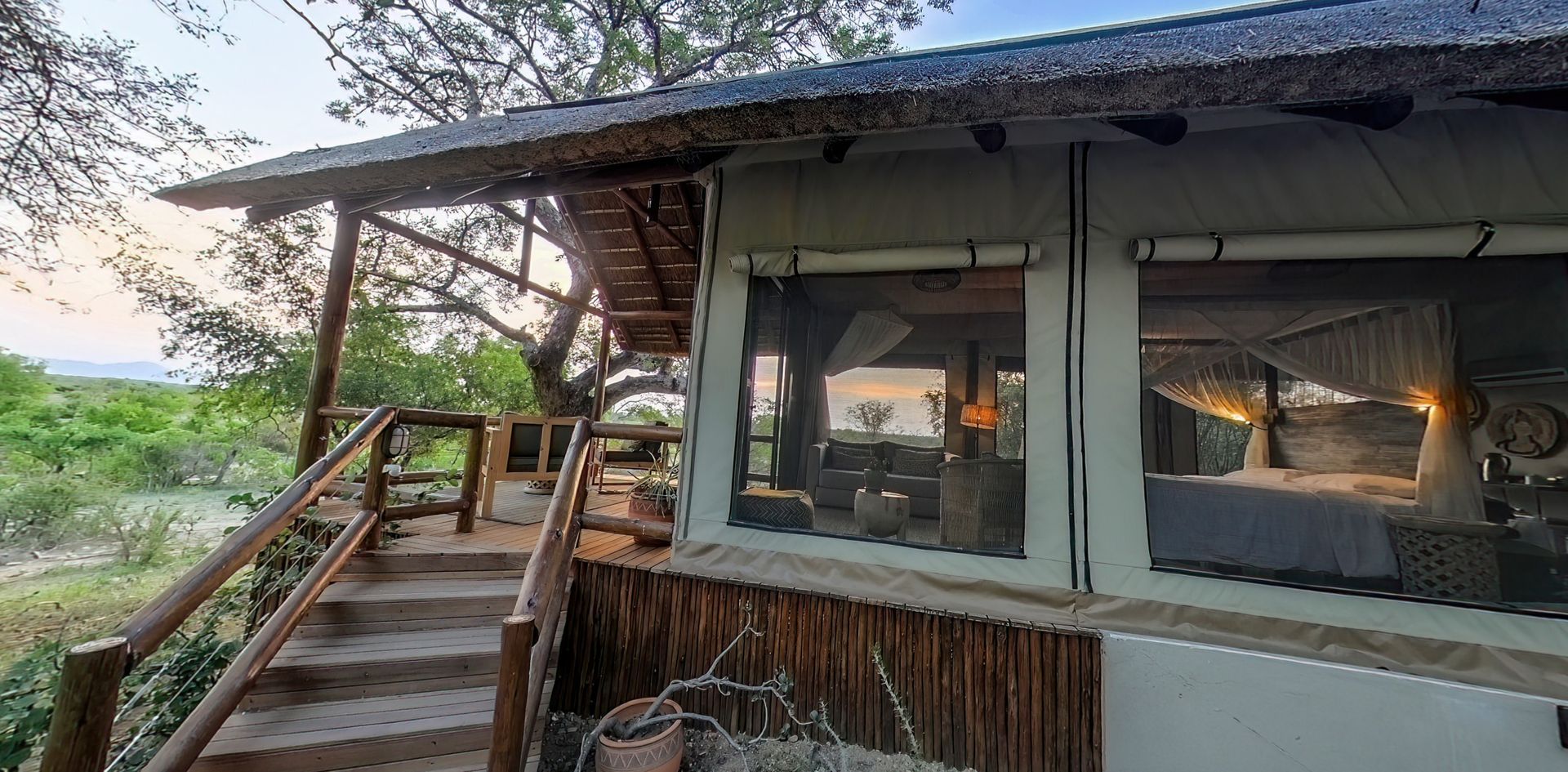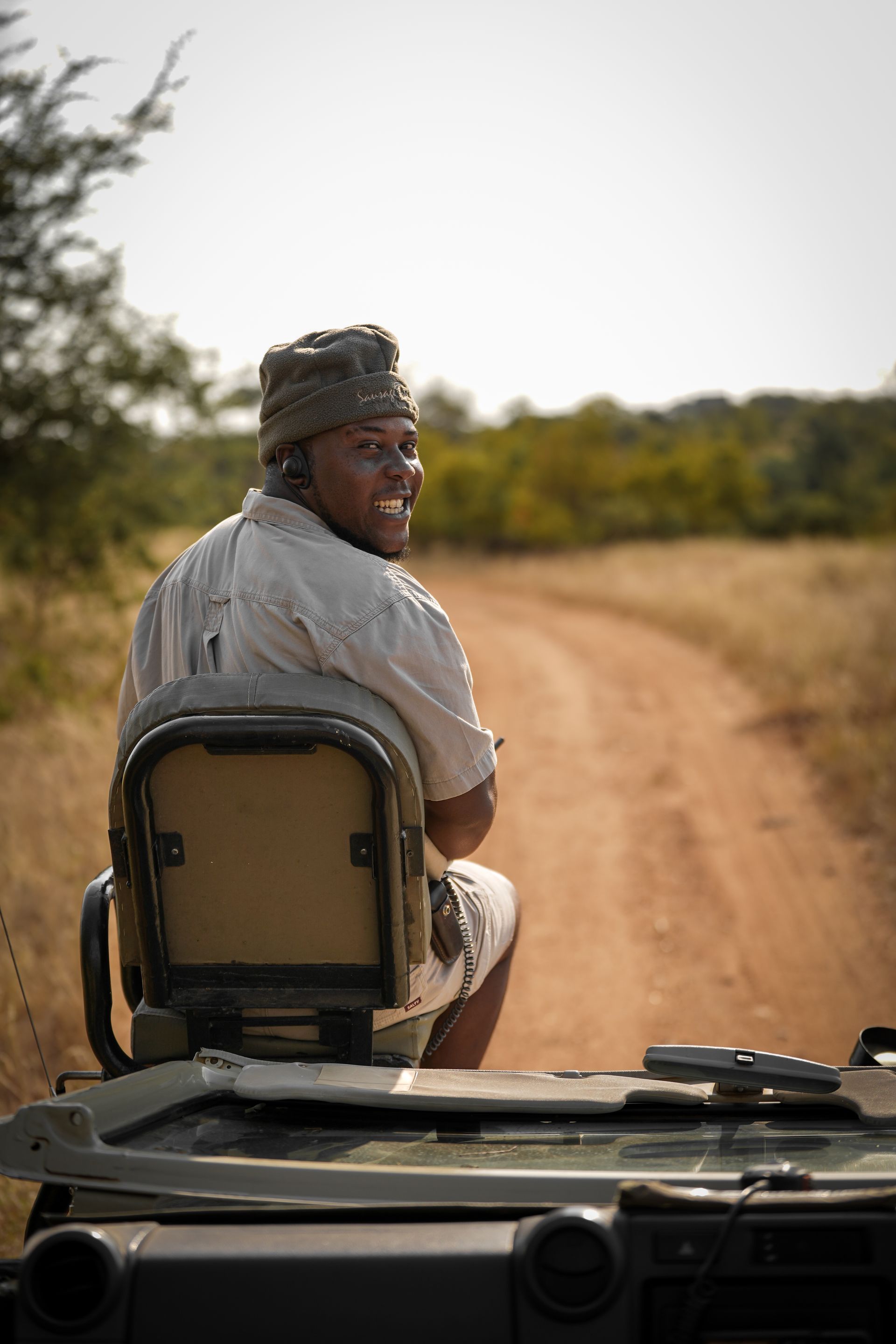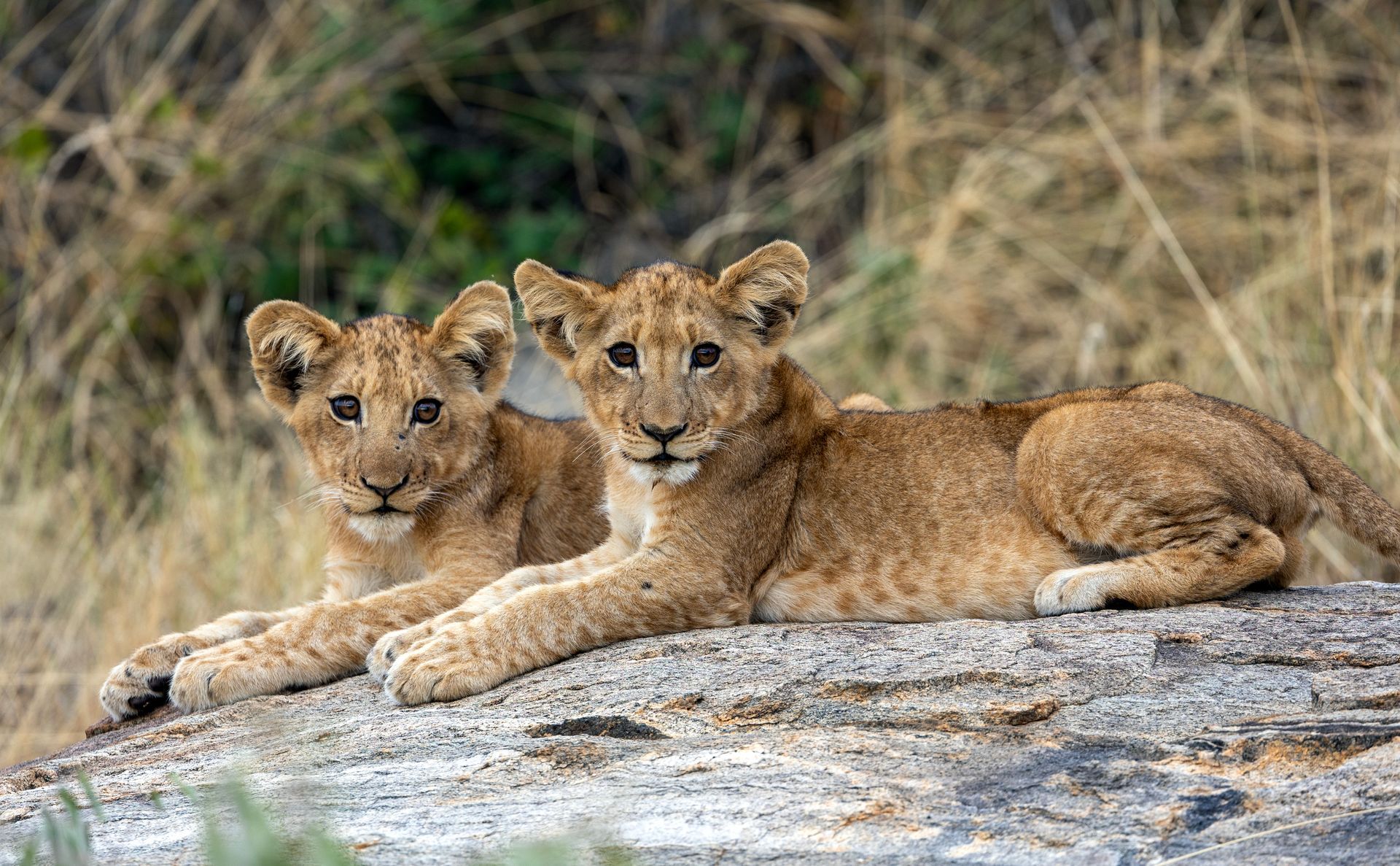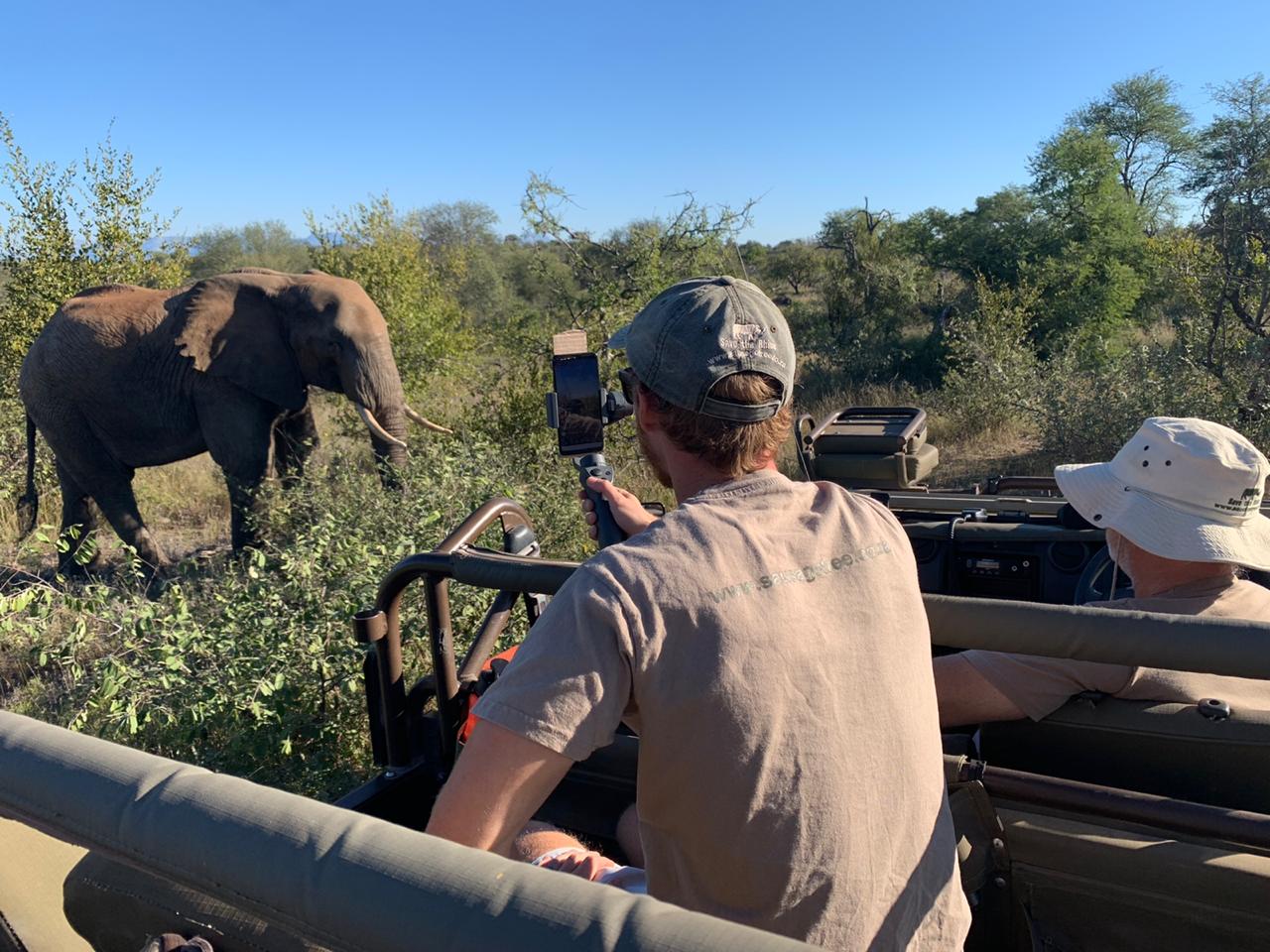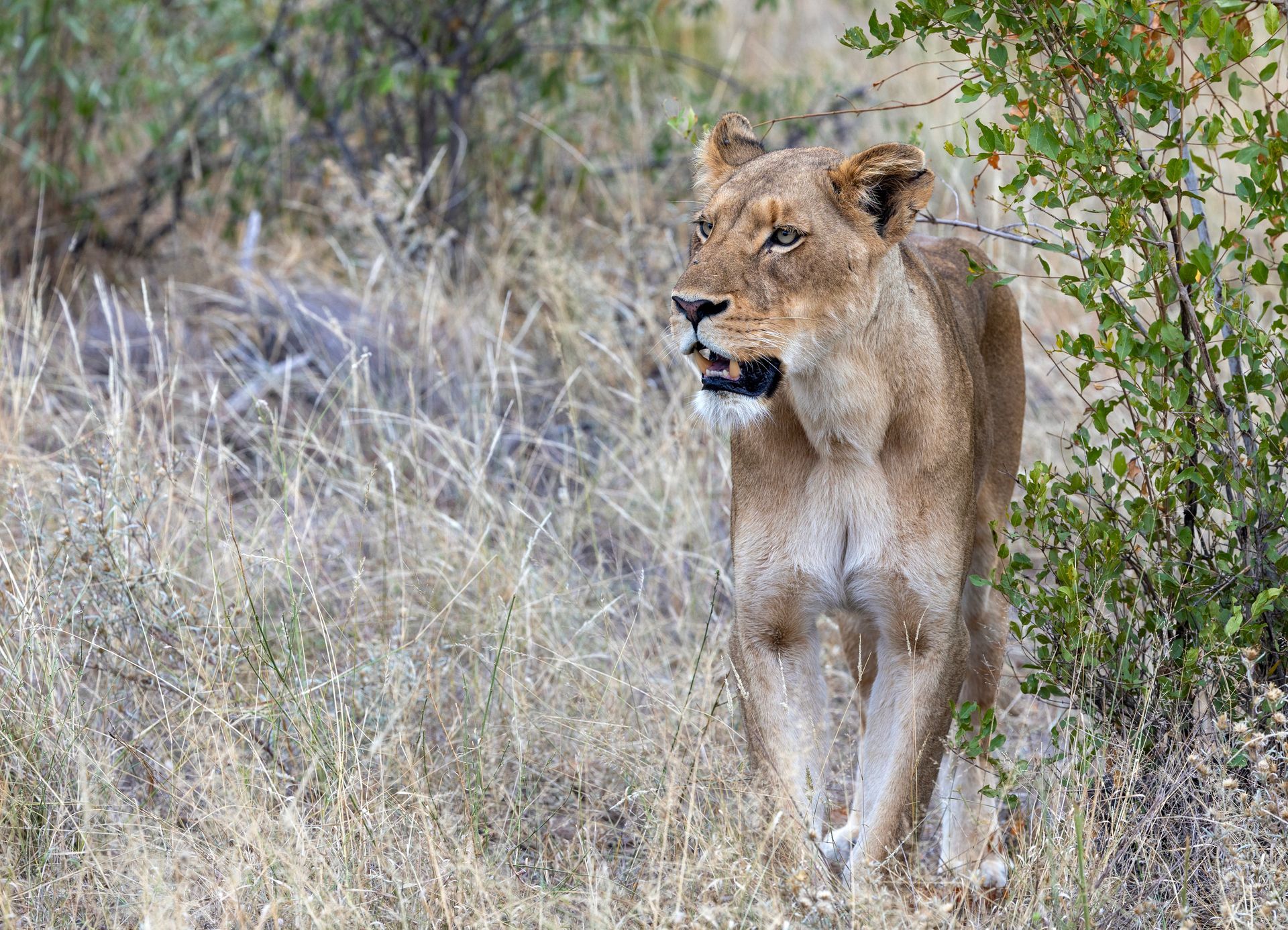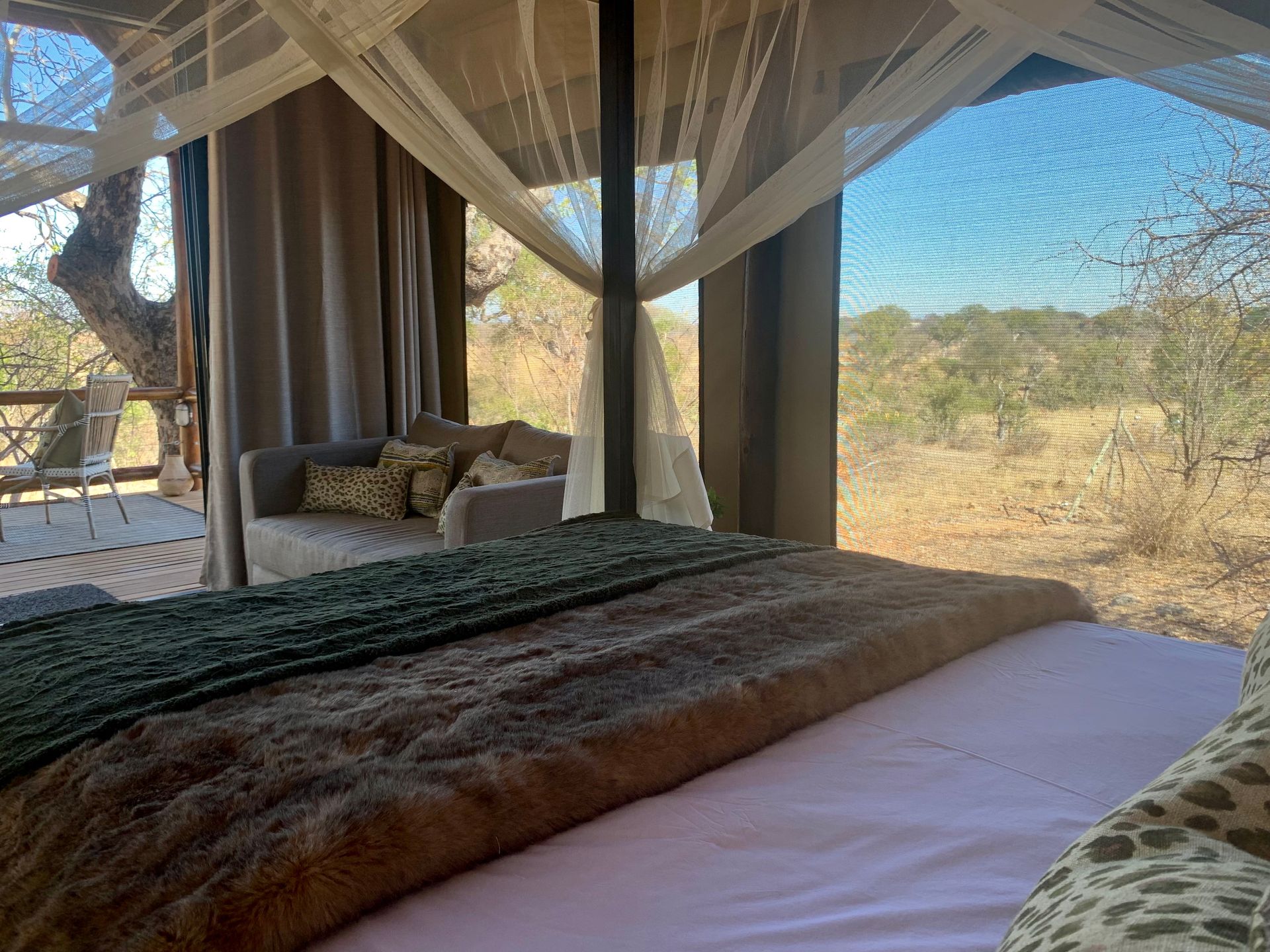From Our Kitchen to Your Heart: Chef Pitso's 13-Year Safari Legacy
Pitso's journey to becoming the heart of our kitchen began in 2012, when he arrived as a young assistant chef, eager but uncertain. "I knew how to cook," he recalls, "but safari cooking? That's different. You're not just making meals – you're part of the whole experience."
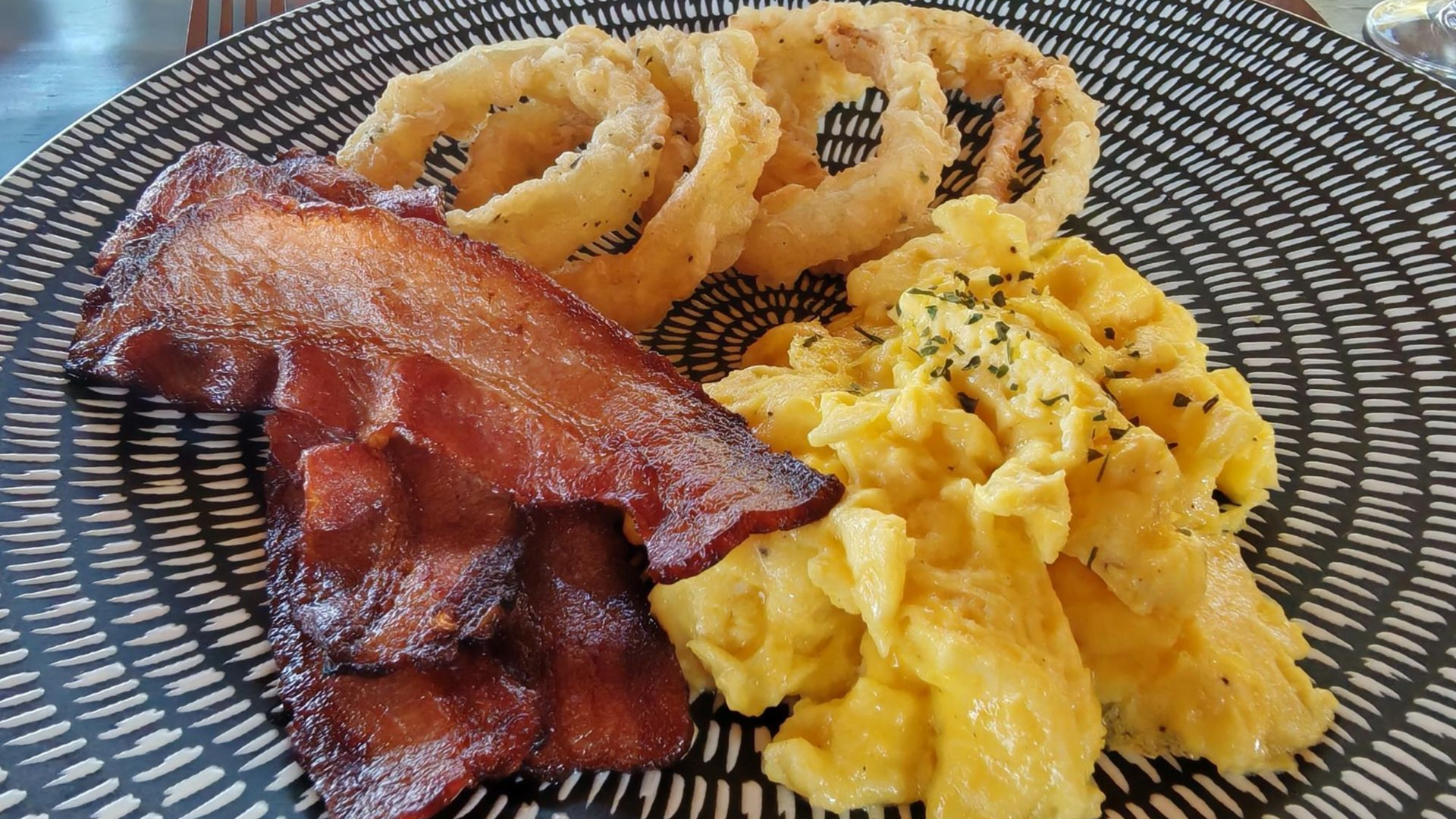
The aroma hits you before you even open your eyes. Fresh bread, cinnamon, and something indefinably African wafts through the pre-dawn air, gently pulling you from dreams of yesterday's leopard sighting. By the time you've stumbled to your tent's coffee tray, there they are – Pitso's famous rusks, still warm, waiting to be dunked in that first life-giving cup. This is how mornings begin at Sausage Tree Safari Camp, and it's been Chef Pitso's signature wake-up call for thirteen remarkable years.
"Food is love," Pitso says with his characteristic shy smile, flour dusting his chef's whites even at 4 AM. "When people are far from home, in the middle of the bush, good food doesn't just fill stomachs – it creates memories." And oh, what memories he's created.
Thirteen Years of Safari Flavors
Pitso's journey to becoming the heart of our kitchen began in 2012, when he arrived as a young assistant chef, eager but uncertain. "I knew how to cook," he recalls, "but safari cooking? That's different. You're not just making meals – you're part of the whole experience."
James and Sonja saw something special in Pitso from the start. His natural warmth, his attention to detail, and most importantly, his understanding that in the bush, every meal is a celebration. Under their guidance and with his natural talent, Pitso evolved from assistant to head chef, and from cook to artist.
"The first time I made rusks on my own, they were hard as rocks," Pitso laughs. "The guides joked they could use them for self-defense against leopards! But I kept trying. Now guests take them home to remember their safari."
The Famous Rusks: A Labor of Love
Ah, those rusks. If Sausage Tree Safari Camp had a flavor, it would be Pitso's rusks dunked in strong coffee while the sun rises over Olifants West. The recipe, perfected over years of early morning baking, remains Pitso's closely guarded secret, though he'll hint at buttermilk, a touch of aniseed, and "just the right amount of love."
"Rusks are personal for me," Pitso explains while shaping the next batch. "My grandmother made them when I was young. Not fancy, just good. When guests tell me my rusks remind them of home, or their grandmother, or childhood – that's when I know I've got it right."
The ritual begins at 3:30 AM. While the camp sleeps and hyenas call in the distance, Pitso's kitchen comes alive. By the time guests wake for their morning game drive, dozens of rusks cool on racks, their sweet scent competing with the wood smoke from the previous night's boma fire.
Beyond the Bush Kitchen Basics
But Pitso's talents extend far beyond his famous rusks. Over thirteen years, he's transformed bush cuisine from simple sustenance to an integral part of the safari experience. His philosophy? Respect local ingredients, honor traditional flavors, but never be afraid to innovate.
"Guests come expecting basic camp food," Sonja notes. "Then Pitso serves his butternut soup with roasted seeds and African spices, or his game carpaccio with wild rocket from our garden, and they're amazed. He's elevated bush cooking to an art form."
The challenges of bush cooking would defeat many chefs. Limited storage, no quick runs to the grocery store, power considerations, and dietary requirements that can change with each new guest arrival. Yet Pitso thrives on these challenges.
"Every week is different," he says. "Maybe we have vegetarians, someone gluten-free, a guest who's never tried game meat, children who are picky eaters. I love it! It keeps me creative."
The Magic of the Open-Air Kitchen
Pitso's kitchen tells the story of thirteen years of safari service. The well-worn cutting boards, the collection of cast-iron pots perfect for traditional potjies, the spice rack that's grown to include flavors from around the world – brought by grateful guests who return year after year.
"This kitchen has seen so much," Pitso reflects during a rare quiet moment. "Birthday cakes baked during power cuts, using the gas oven by lantern light. Christmas dinners when guests became family. That time we had to cook an entire meal on the braai when the stove broke, and it became one of our most memorable dinners."
The kitchen's position allows Pitso to watch the waterhole while prepping vegetables or stirring sauces. "Sometimes I'm chopping onions and elephants walk by. Or I'm making bread and hear lions roaring. Where else can a chef work with this view?"
Memories Served with Every Meal
Over thirteen years, Pitso has created countless food memories. There was the honeymoon couple who requested a surprise bush dinner, complete with Pitso's take on their wedding cake flavor. The 80-year-old guest who cried when Pitso's oxtail stew tasted "exactly like my mother's." The child afraid to try new foods who ended up requesting Pitso's kudu kebabs every night.
"Food opens hearts," Pitso observes. "Around our table, strangers become friends.
They share stories between courses, laugh over dessert, plan tomorrow's adventures over coffee. I'm not just feeding bodies – I'm helping create connections."
His signature dishes have become legend among returning guests. The breakfast fry-up that somehow tastes better in the bush than any five-star hotel. The lunch salads that showcase whatever's fresh, garnished with edible flowers from around camp. The dinner showstoppers – perhaps his famous warthog fillet with green peppercorn sauce or his vegetarian bobotie that converts carnivores.
Teaching and Sharing: The Next Generation
These days, Pitso has assistants of his own, young people from nearby communities eager to learn the art of safari cooking. He teaches them with the same patience James and Sonja showed him thirteen years ago.
"It's not just about recipes," he tells them. "It's about reading your guests. The tired family who needs comfort food. The adventurous couple ready to try something wild. The guest who's homesick and lights up when you remember they mentioned loving a certain dish."
He's particularly proud of his involvement with local schools, sometimes hosting students interested in hospitality careers. "If I can inspire one young person to see cooking as art, as a way to touch lives, then I've given back something valuable."
The Heart of the Camp
After thirteen years, Pitso isn't just our chef – he's family. Guests request him by name in their booking inquiries. "Will Pitso still be making his rusks?" they ask. Travel forums mention his food as a highlight. Food bloggers have featured his bush cuisine innovations.
Yet Pitso remains humble, more likely to credit his team, the quality of local ingredients, or the magic of the bush setting than his own considerable skills. "I'm just lucky," he says. "Lucky to wake up here every day, to cook for people living their dreams, to be part of their African adventure."
A Taste of Tomorrow
As Pitso plans tomorrow's meals – checking dietary requirements, planning his market list, perhaps tweaking a sauce recipe – he reflects on thirteen years of safari service. "Every meal is a chance to make someone's day special. Maybe they've just seen their first leopard, or they're celebrating an anniversary, or they're simply here, living their safari dream. My food is part of that story."
The sun sets over Olifants West as Pitso begins dinner preparations. Soon, guests will gather, stories will flow, and another memorable meal will unfold under African stars. And tomorrow morning? Tomorrow morning there will be fresh rusks, warm from the oven, waiting to start another perfect safari day.
Because after thirteen years, Pitso knows the secret: in the bush, food isn't just sustenance. It's comfort, celebration, connection, and memory all seasoned with African magic and served with love.
Come and taste Pitso's thirteen years of culinary passion at Sausage Tree Safari Camp. Contact info@sausagetree.co.za to reserve your place at our table.
